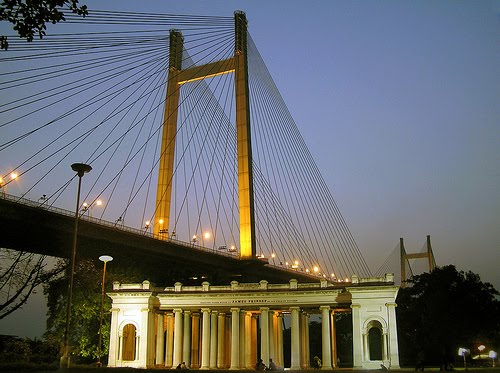The Absolute Anglo-Indian By K.C. Sen, New Millennium, £9.95
This book’s interest lies in the era and society it evokes. K.C. Sen, Bhaiya or Kacy to intimates, was Brahmananda Keshub Chunder Sen’s great grandson on one side and the great-great-grandson of General Sir Edward Barnes, governor of Ceylon and India’s commander-in-chief, on the other. But he is out of joint in concluding that today’s “Absolute Anglo-Indian” will become tomorrow’s “Obsolete Anglo-Indian”. Tomorrow was yesterday, not just for Anglo-Indians but for the fast, fun-loving Anglo-Bengali world of which he writes.
Sen was not Anglo-Indian in the sense of being “of European descent in the male line”, which is the legal definition. As he says, with his extended family spread out in India, Britain, Australia, France, Canada, Myanmar, Switzerland and Pakistan, he could truly have been called a man of the world. But it’s clear that two distinct identities overlapped in his consciousness. His roots were in the archaic Ingabanga society of 19th-century Bengal. Anybody who was anybody in the Calcutta of the Thirties, Forties and Fifties was a relative. Overlaid on that was the Anglo-Indian culture of the Rangers Club, the Grail Club and the club of which he says that “if ever there was a place that separated the men from the boys, and no angels feared to tread, it was the good old Golden Slipper.” Sen managed it for a while, but the links went deeper. Older members of that milieu still remember his unorthodox wedding invitation, “Bridgette and I are going to be married at the Golden Slipper Club.”
His world straddled Calcutta, Darjeeling and London — or rather, small gilded niches in all three, venturing regularly to Colombo and Simla. Rakish Cooch Behar royals, male and female, also descendants of Keshub Sen, loomed large in this fin de siècle society to which World War II and the 300 Club lent zest.
Sen played many parts. He was oarsman, poet, war reporter behind the Burma front, songwriter, composer, guitarist, public relations officer, box-wallah, radio broadcaster and, above all, impressario. His Cavaliers was a popular band. He was frequently MC at the open-air Scherezade nightclub at the Oberoi Grand. It is no surprise that showbiz characters pop in and out of these pages — Duke Ellington, Ross Parker, Alfred Hitchcock and, perhaps in the same genre, Lord Mountbatten. It “was over a cup of tea on the verandah” of his flat that he provided Satyajit Ray with Devika Halder a.k.a. Vicky Redwood for Mahanagar. She was part of Bandwagon, Sen’s group. He says that the voice off-screen in Mahanagar was that of Devika, but the song was a ballad, Time Gave Me No Chance, that he had composed in his rowing days. Major Sharat Kumar Roy of the US army was an unusual wartime buddy and surely the only NRI to be commemorated by a mountain in Greenland: he discovered Mount Sharat.
The book is a treasure trove of such nuggets, though, sadly, many of the illustrations are almost illegible. But though Sen provides enjoyable glimpses, laced with humour, into a vanished world, it would be idle to pretend he does full justice either to his august lineage or to the opportunities that were his. Indeed, one might apply to him Max Beerbohm’s immortal epitaph on George IV’s ill-used and ill-fated queen, “Fate wrote her a most tremendous tragedy, and she played it in tights.”
Paradoxically, Sen is least enjoyable when he pontificates. The constant jumping back and forth from Barnes and Keshub Sen to the contemporary scene is disconcerting. But for all its contrary title, The Absolute Anglo-Indian opens a window of nostalgia into the vanished phenomenon of Anglicized Bengali society.
Patrick Doran was the lead singer of the pop group called the Cavaliers, that played at Trincas and other restaurants in Calcutta. They were one of the first pop groups to cut a record Called love is a mango.Patrick is now settled in Denmark.





